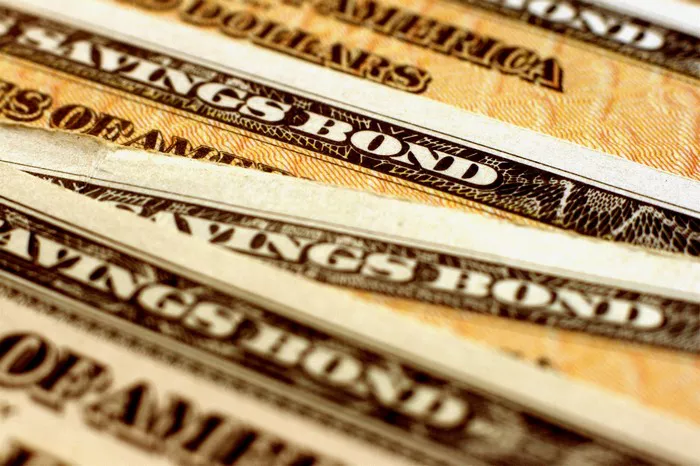Savings bonds have long been a popular investment option for individuals seeking a secure way to save money for the future. These government-issued securities offer a reliable way to grow your savings over time. However, when it comes time to cash in your savings bond, you may find yourself wondering where to go. In this comprehensive guide, we’ll explore the various options available for cashing in your savings bond, ensuring you make the most of your investment.
Understanding Savings Bonds
Before delving into where to cash savings bonds, it’s essential to understand what they are and how they work. Savings bonds are debt securities issued by the U.S. Department of the Treasury. They are considered one of the safest investments available because they are backed by the full faith and credit of the United States government.
There are two primary types of savings bonds: Series EE bonds and Series I bonds. Series EE bonds are sold at face value and accrue interest over time. Series I bonds, on the other hand, earn interest based on a fixed rate plus an inflation rate that adjusts semiannually.
Where Can I Cash a Savings Bond?
When it comes time to cash in your savings bond, you have several options available to you. The best option for you will depend on your individual circumstances, including your proximity to financial institutions and your preference for convenience.
1. Financial Institutions
Most banks and credit unions offer savings bond redemption services to their customers. If you have an account with a financial institution, it’s worth checking to see if they can help you cash in your savings bond. Many institutions have specific policies and procedures for redeeming savings bonds, so it’s a good idea to call ahead and inquire about their process.
When visiting a bank or credit union to cash your savings bond, be sure to bring proper identification, such as a driver’s license or passport. You’ll also need to provide the savings bond itself, so be sure to have it on hand when you visit.
2. TreasuryDirect
Another option for cashing savings bonds is to use the TreasuryDirect website, which is operated by the U.S. Department of the Treasury. TreasuryDirect allows investors to manage and redeem their savings bonds online, making it a convenient option for those who prefer to handle their finances electronically.
To redeem a savings bond through TreasuryDirect, you’ll need to create an account on the website and link your savings bond to your account. Once linked, you can initiate the redemption process and have the funds deposited directly into your bank account.
3. Employer-Sponsored Savings Plans
Some employers offer savings bond redemption services as part of their employee benefits packages. If your employer participates in such a program, you may be able to cash your savings bond through your workplace.
To take advantage of this option, check with your human resources department to see if they offer savings bond redemption services and what the process entails. You’ll likely need to provide the savings bond along with appropriate identification to initiate the redemption process.
4. Public Libraries
In some cases, public libraries may offer savings bond redemption services to their patrons. While this option may not be widely available, it’s worth checking with your local library to see if they can assist you with cashing in your savings bond.
If your library does offer savings bond redemption services, be sure to inquire about any fees or restrictions associated with the process. Additionally, make sure to bring proper identification and the savings bond itself when visiting the library.
5. Financial Advisors
If you work with a financial advisor or planner, they may be able to help you cash your savings bond. Many financial professionals have relationships with banks and other financial institutions that allow them to facilitate savings bond redemptions on behalf of their clients.
If you’re unsure whether your financial advisor offers savings bond redemption services, reach out to them for guidance. They can help you understand your options and assist you in navigating the redemption process.
Important Considerations
When cashing a savings bond, there are several important factors to keep in mind:
1. Tax Implications: Interest earned on savings bonds is subject to federal income tax but is exempt from state and local taxes. Be sure to consult with a tax advisor to understand the tax implications of cashing your savings bond.
2. Redemption Restrictions: Savings bonds are subject to redemption restrictions, which may vary depending on the type of bond and how long it has been held. Be sure to familiarize yourself with any redemption restrictions that may apply to your savings bond before attempting to cash it.
3. Identification Requirements: When cashing a savings bond, you’ll need to provide proper identification to verify your identity. Be sure to bring valid identification, such as a driver’s license or passport, when redeeming your savings bond.
4. Fees and Charges: Some financial institutions may charge fees or commissions for cashing savings bonds. Before initiating the redemption process, inquire about any fees or charges that may apply and consider whether they are worth the convenience of cashing the bond at that institution.
Conclusion
Cashing a savings bond is a straightforward process, but it’s essential to understand your options and choose the method that works best for you. Whether you prefer the convenience of cashing your bond at a bank or credit union, the flexibility of using an online platform like TreasuryDirect, or the assistance of a financial advisor, there are plenty of options available to help you make the most of your investment. By familiarizing yourself with the various redemption methods and considering important factors like tax implications and fees, you can confidently cash your savings bond and put your funds to good use.


